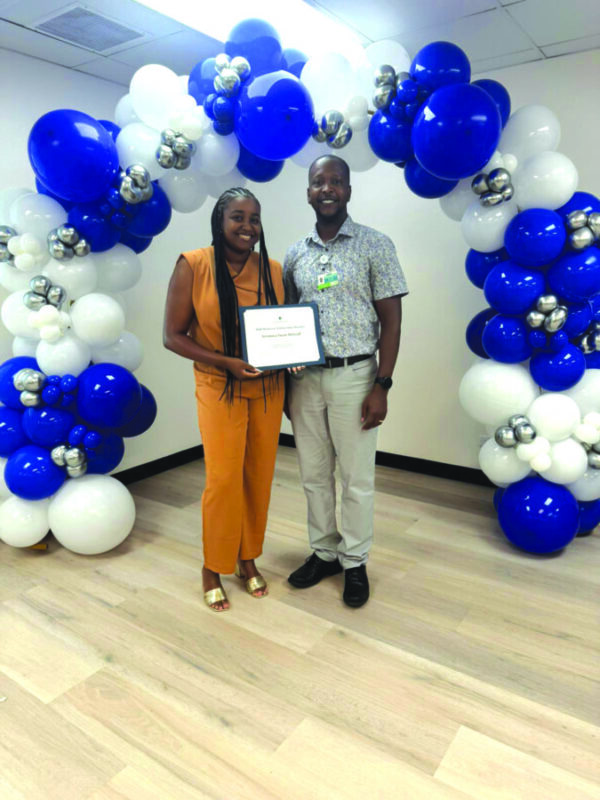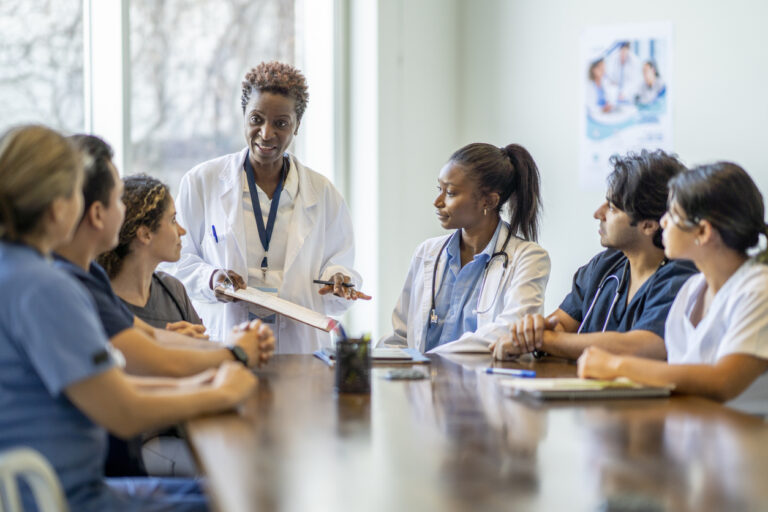The Bermuda Hospitals Board (BHB) Scholarship Programme has been a great financial support for young Bermudians pursuing a career in medicine. To be successful, applicants should have completed at least two years at an accredited institution, approved by a relevant licensing council, and have maintained a 3.0 grade-point average or equivalent throughout their studies.
Storm Gibbons and Veronica Swan-DeGraff, who each benefited from a one-year $15,000 BHB General Scholarship, are in their first year of study at St George’s University in Grenada, West Indies.
Q: What got you interested in medicine?
SG: In high school I knew I liked science, I knew I liked working with people, but it didn’t help to narrow it down much. I was in quite a severe bike accident at 16 that left me in a wheelchair for about half a year so, as you can imagine, I spent a lot of time in the hospital with the doctors, with the nurses, with the physical therapists and I got to observe all the different roles within a healthcare team. I just really gravitated towards the role of the doctor. I enjoyed seeing the way they played detective and worked with other team members to put pieces of a puzzle together and come up with a diagnosis and a treatment plan.
 VS-D: My primary female figure is my grandmother, Elaine Butterfield, who was a nuclear medicine technologist at [King Edward VII Memorial Hospital] and manager of Diagnostic Imaging for several years. When I was in middle and high school, I was a candy striper and later on, a volunteer in the Continuing Care Unit in the Activities Department. So I kind of grew up in the hospital and that’s why I chose a career in medicine, because I really loved to watch my grandmother in the healthcare space and then later on got to be a part of it through volunteering. My grandmother’s career has kind of moved on. She now works with non-profits. She was executive director of the Women’s Resource Centre, executive director of the Centre on Philanthropy [and chairperson of the advisory board of the] Transformational Living Centre. Her whole life has been modelled around helping others, serving others. I feel like that also contributes to why I want to be in healthcare.
VS-D: My primary female figure is my grandmother, Elaine Butterfield, who was a nuclear medicine technologist at [King Edward VII Memorial Hospital] and manager of Diagnostic Imaging for several years. When I was in middle and high school, I was a candy striper and later on, a volunteer in the Continuing Care Unit in the Activities Department. So I kind of grew up in the hospital and that’s why I chose a career in medicine, because I really loved to watch my grandmother in the healthcare space and then later on got to be a part of it through volunteering. My grandmother’s career has kind of moved on. She now works with non-profits. She was executive director of the Women’s Resource Centre, executive director of the Centre on Philanthropy [and chairperson of the advisory board of the] Transformational Living Centre. Her whole life has been modelled around helping others, serving others. I feel like that also contributes to why I want to be in healthcare.
Q: Was the BHB application process easy?
SG: For my bachelor’s degree, I received the Ministry of Education Award, which paid for everything, fortunately. So, I knew what to expect. When I came home after [my bachelor’s degree] I started working at Dignity House, which is a psychiatric facility. I worked there and spent 90 percent of my time outside of work just applying for medical school. I found out a few months later that I was accepted to St George’s University and I applied for every [scholarship] that I saw.
VS-D: I’m big on networking and some of the individuals in the [interview] room I had previously met, so I felt very comfortable. I thought [my interview] went extremely well. I also felt I had the upper hand [because I was] working at BHB and some of my mentors were doctors at BHB. When you’re going through the interview process or the application process, you need a letter of recommendation, and one of my letters was from a BHB doctor. It was very comforting.
Q: Advice to medical students now applying for scholarships?
SG: Bermuda is small and [offers] a great opportunity to work with doctors. Just getting my foot in the door at the hospital, getting to know as many people as possible, whether that’s doctors or people in HR that have been great mentors, networking as much as I can [has all helped].
VS-D: They should definitely do their homework. I shadowed doctors, I shadowed nurses, I literally sat in on their days and tried to figure out if this is something I really want to do. I got the opportunity to shadow an ER physician and I absolutely loved it. I’m happy that I took the time to do that. Medical school is so stressful. I’m grateful to have mentors who instructed me, who told me how hard it was for them. I’m grateful for that honesty. Decide how bad you want this, decide what your financial position is, and then I would say, go for it. Usually, I start preparing my scholarship applications in January. I have a whole file of personal statements, cover letters, letters of recommendations, resumes that I’ve kept over the years through my undergraduate applications as well, and it makes the process easier every year. I stay on top of my resume all the time, and I have people I trust, who I can send it to to edit.

